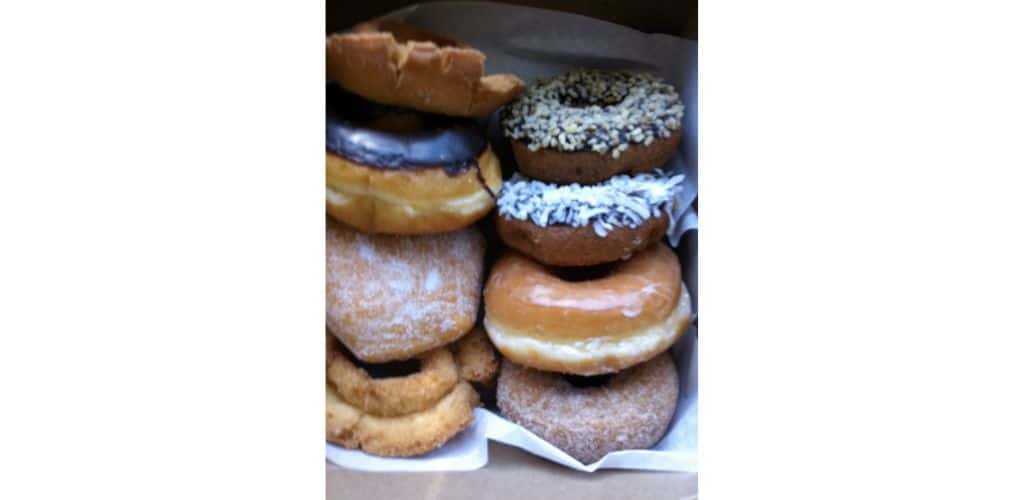In trademark law, the general rule is that, where two parties seek to use the same trademark in the same geographic area, the earlier (“senior”) user has rights superior to those of a subsequent (“junior”) user.
However, under the Dawn Donut rule,
if the use of the marks by the registrant and the unauthorized user are confined to geographically separate markets, with no likelihood that the registrant will expand his use into the defendant’s market, so that no public confusion is possible, then the registrant is not entitled to enjoin the junior user’s use of the mark.
This rule dates back to a case from 65 years ago.
In 1959, the Second Circuit noted that plaintiff Dawn Donut Co., Inc., of Jackson, Michigan since June 1, 1922 had continuously used the trademark “Dawn” on 25 to 100 pound bags of doughnut mix it sold to bakers in various states, including New York.
Plaintiff’s marks were registered federally in 1927, and the registration was renewed in 1947.
The defendant, Hart Food Stores, Inc., owned and operated a retail grocery chain within the New York counties of Monroe, Wayne, Livingston, Genesee, Ontario and Wyoming. It sold and advertised donuts and other baked products within 45 miles or Rochester, New York.
Hart first used the imprint “Dawn” on its packaging stating in 1951.
As the court noted,
The district court found that the defendant adopted the mark “Dawn” without any actual knowledge of plaintiff’s use or federal registration of the mark, selecting it largely because of a slogan “Baked at midnight, delivered at Dawn” which was originated by defendant’s president and used by defendant in its bakery operations from 1929 to 1935. Defendant’s president testified, however, that no investigation was made prior to the adoption of the mark to see if anyone else was employing it.
The district court had dismissed both plaintiff’s complaint for infringement of its federally registered trademarks and defendant’s counterclaim to cancel plaintiff’s federal registrations.
The question before the Second Circuit was:
whether the plaintiff, a wholesale distributor of doughnuts and other baked goods under its federally registered trademarks “Dawn” and “Dawn Donut,” is entitled under the provisions of the Lanham Trade-Mark Act to enjoin the defendant from using the mark “Dawn” in connection with the retail sale of doughnuts and baked goods entirely within a six county area of New York State surrounding the city of Rochester.
The court concluded that
because no likelihood of public confusion arises from the concurrent use of the mark in connection with retail sales of doughnuts and other baked goods in separate trading areas, and because there is no present likelihood that plaintiff will expand its retail use of the mark into defendant’s market area, plaintiff is not now entitled to any relief under the Lanham Act, 15 U.S.C.A. § 1114. Accordingly, we affirm the district court’s dismissal of plaintiff’s complaint.
However, this doesn’t mean that the defendant has any permanent right to use the mark in the area.
On the contrary, said the court,
we hold that because of the effect of the constructive notice provision of the Lanham Act, should the plaintiff expand its retail activities into the six county area, upon a proper application and showing to the district court, it may enjoin defendant’s use of the mark.
One area where this has important implications is with franchises. In recent years, state regulators in states where franchises (such as fast-food chains) must be registered are doing state trademark searches and advising franchise owners who seek to do business in those states when a business in that state is already doing business under the same name.
Franchise owners may need to disclose the risk that a potential franchisee may not be able to enforce its trademark rights in such state, making it unlikely that the potential franchisee will go ahead with the deal.
Just like the haiku above, we like to keep our posts short and sweet. Hopefully, you found this bite-sized information helpful. If you would like more information, please do not hesitate to contact us here.


